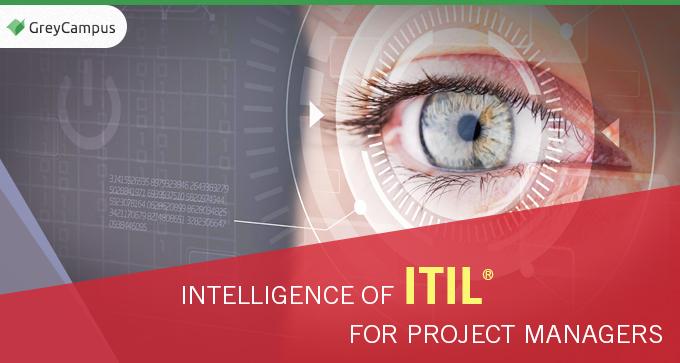Intelligence of 'ITIL' For Project Managers
Information Technology Infrastructure Library is a set of principles and practices that are made for IT services so as to deliver the results that are aligned with the IT services requirement. They focus on having sustainable results. ITIL has different versions that cater to the changing needs of the IT industry. With each version, the
framework of ITIL develops further so that IT industries may have complete processes and a structured and more elaborate system to run their business. Since it is a blend of smart set of methods and practices, it is often considered as intelligent software by the users. This intelligence can be greatly utilized by project managers. Let’s see how.
Core Process Functions:
The intelligence comes from the framework of the system that is divided into 4 core process functions. They are:
- Service Strategy – This focuses on determining which ideas and strategies would work the best for you and serve the same for your client
- Service Design – This function is responsible for developing and designing new changes in the framework. It is important the framework and the set of practices are kept up to date to match up to the changes in the IT services
- Service Transition – This process is where the IT services are built and deployed. This is an important process which mainly helps the project managers for delivering result oriented products and services
- Service Operation – Once the IT services are deployed, it has to be ensured that they are delivered in an efficient manner. Once delivered, one had to ensure that the right support is provided to attain sustainable results
These four processes ensure that any IT service runs smoothly in a business-like manner. The technical details hold paramount importance in any IT industry, thus underlining all the technical details with a layer of business sense is important for every
project manager. Thus, a fifth area of ITIL comes into the picture that helps one improve the processes continuously. All these five processes provide all the intelligence that can be used by the project managers, right from the start till the end where the product is delivered and improved henceforth to being sustained. All the steps mentioned need to performed accurately and there is no reason why any
project manager would fail to deliver the desired results.
Intelligence for Project Managers:
Of all the five processes, the one that the project managers use the most is the
Service Transition process. The steps and practices mentioned here are used extensively in project management. Here ITIL provides the intelligence of different phases such as initiation, planning, controlling the project and reporting the results. The project managers are provided with a set of practices that helps them initiate any project with ease. This is a crucial step for any project and the chances of glitches should be kept to a minimum.
Once the initiation is done, project managers need to start planning and the intelligence of ITIL once again steps to lend a hand to them. The same goes with controlling and reporting.
ITIL has a flexible framework that allows the project managers to integrate different processes together seamlessly. These are called hooks and with their help, any project manager can modify or design his processes to suit his requirements while complying with the methods as set by ITIL. Along with hooks, the presence of pivots helps the managers. Pivots are nothing but what connects various logical sequences that are a part of the process. This intelligence allows one to handle change in a systematic manner, providing least resistance and disruption to the existing systems.
The Benefits:
The sheer numbers of ways that
ITIL can benefit any organization are many. ITIL passes on its intelligence through various processes and sub-processes that tell how to perform a function. Thus, if specifically the project managers are looking to milk some of the many benefits, they won’t be disappointed to say the least.
Author : Uma Daga
Click Here for ITIL Course
